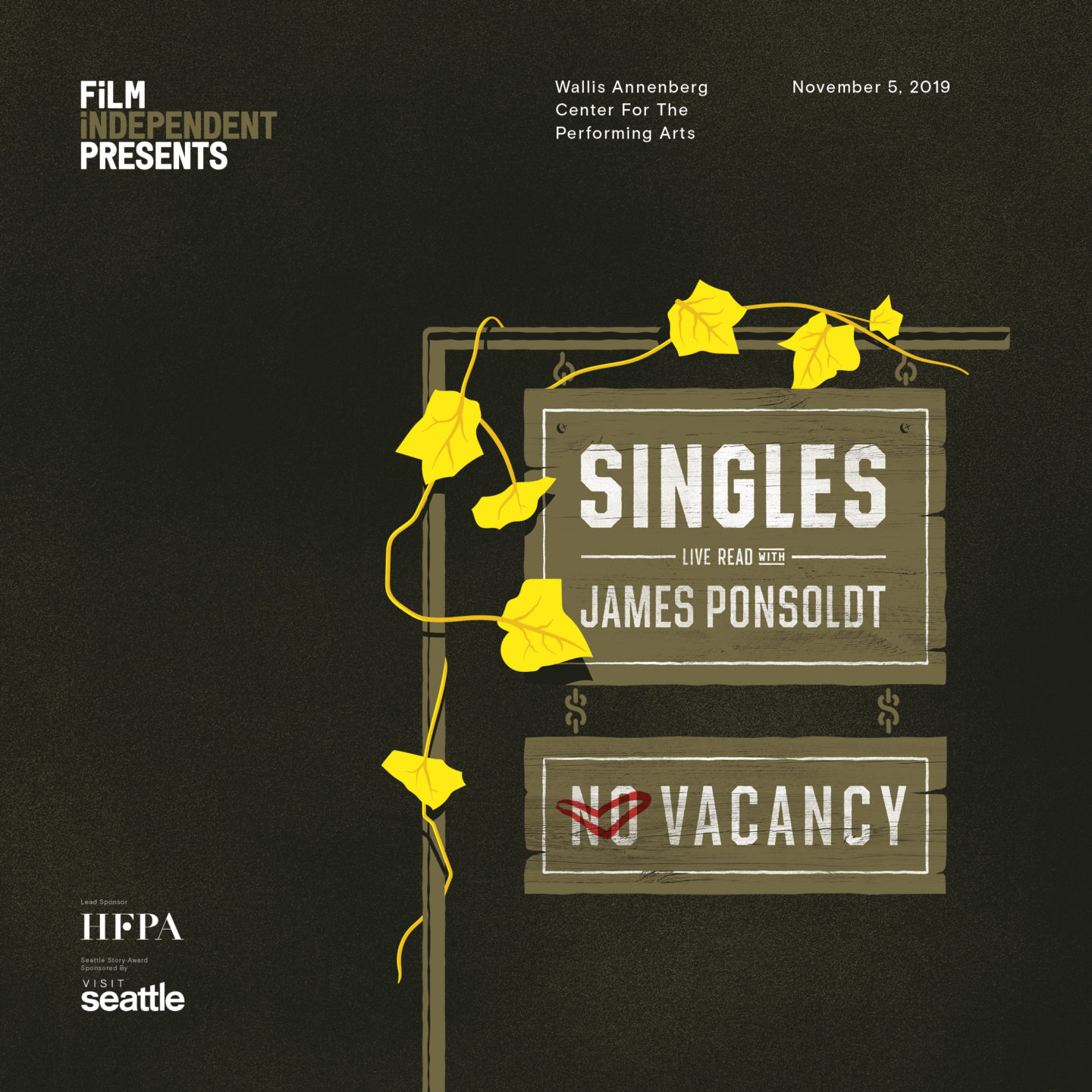
If I Would, Could You? ‘Singles’ Live Read Coming, November 5 Film Independent
Here are three explanations you'll usually come across: "Would you" is correct, because you are asking if someone will do something and not whether they can do it. "Would you" also sounds more polite than "Could you.". "Would you" and "Could you" are equally polite and valid ways to make a request. "Could you" sounds.
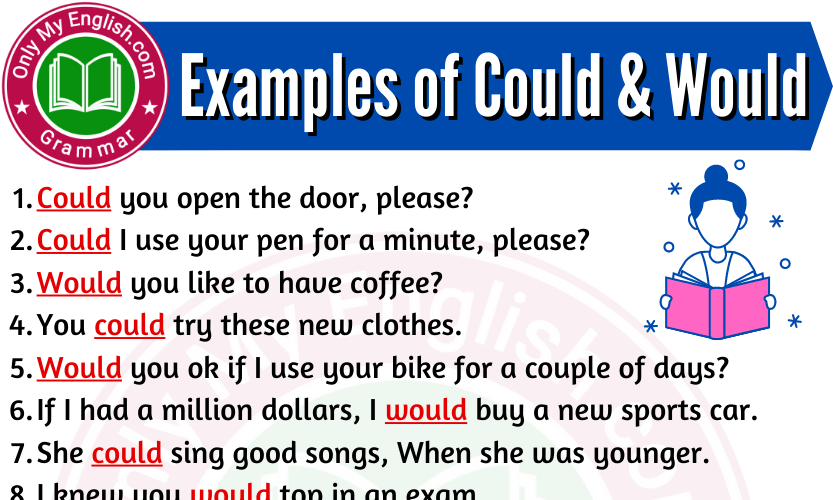
20 Could and Would Sentences Examples »
Could you please email me the directions to your house? Would you please email me the directions to your house? For most speakers, these are two ways of asking the exact same thing. Of course, if either of these questions is asked with an angry voice and intonation, the meaning changes. Imagine a frustrated mother or father looking at a.

Resultado de imagen de modal verbs English Grammar Rules, English Verbs, Learn English Grammar
#1 La canción "Would?" de Alice in Chains, termina con un verso que por más que intento, no consigo entender: "If I would could you?" He acudido a traductores, pero las traducciones automáticas no me cuadran, aunque no puedo negarlas porque ni idea.
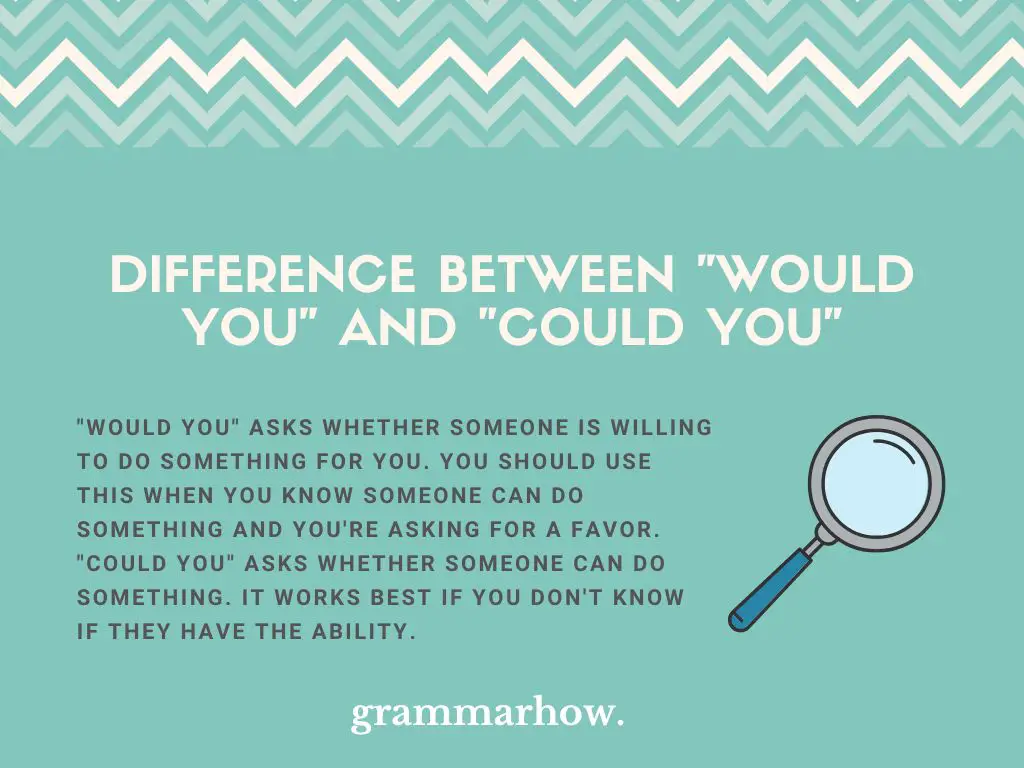
"Would You" vs. "Could You" Difference Explained (Examples)
1,976 4 32 58 What makes you think it might not be correct? - ColleenV Jul 1, 2018 at 11:24 @ColleenV because I'm not that good in English and I'm not used to form long sentences. I think the rules is: If (present), (future, will). Or If (past), (would).
If I could I would give you the world But all I can do is just offer you my love * Post by
You should use "would you" when you're asking if someone is willing to help you out with something. "Would" relates to "will," and we use it to ask whether someone is happy to help out. "Would you" works best when we know that someone has the ability to do something.

If I could give you one thing in life, I would give you the ability to see yourself through my
1 Remember that "if he could" is the same as "if he were able". Since there is nothing wrong with "If he were able to finish today, that would be good", there is similarly nothing wrong with your formulation. There is a common German blunder of using would in both halves of a conditional in English, but this is not it. - tchrist ♦
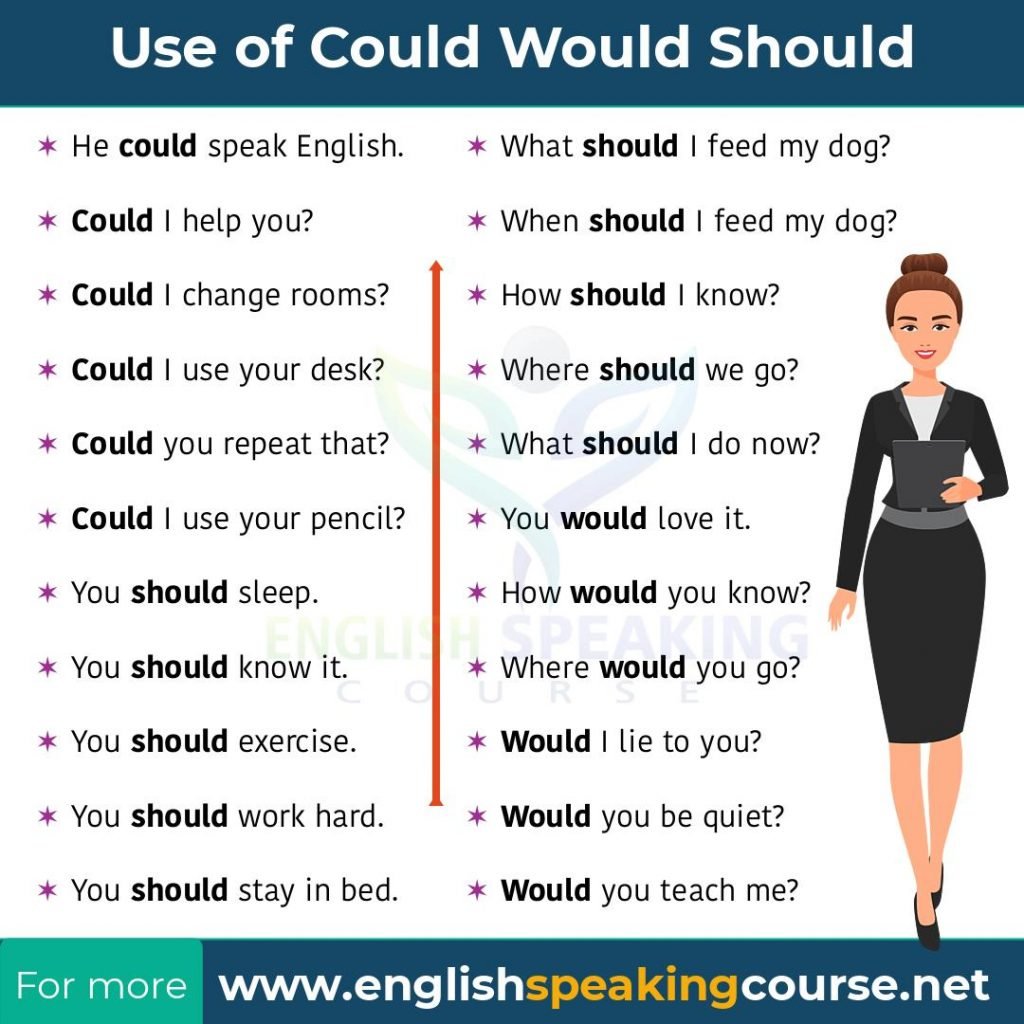
Could, should and would in English Grammar Modal Verbs Grammar
Product Company Should I Use Will or Would in an If-Clause? Grammarly Many writers wonder if it's equally correct to use "will" or "would" in an if-clause. The short answer is no, but there are exceptions to the rule. Here's a tip: Want to make sure your writing always looks great?

Modal Verbs Could and Would English Study Here
1. Form 2. Examples (if-clause at the beginning) Mind the comma after the if clause. 3. Examples (if-clause at the end) 4. Examples (affirmative and negative sentences) * We can substitute could or might for would ( should, may or must are sometimes possible, too). I would pass the exam. I could pass the exam. I might pass the exam.

If I could give you one thing in life, I would give you the ability to see... PureLoveQuotes
from English Grammar Today Imagined conditions There are different types of conditions. Some are possible or likely, others are unlikely, and others are impossible: If the weather improves, we'll go for a walk. (It is possible or likely that the weather will improve.) If the weather improved, we could go for a walk.
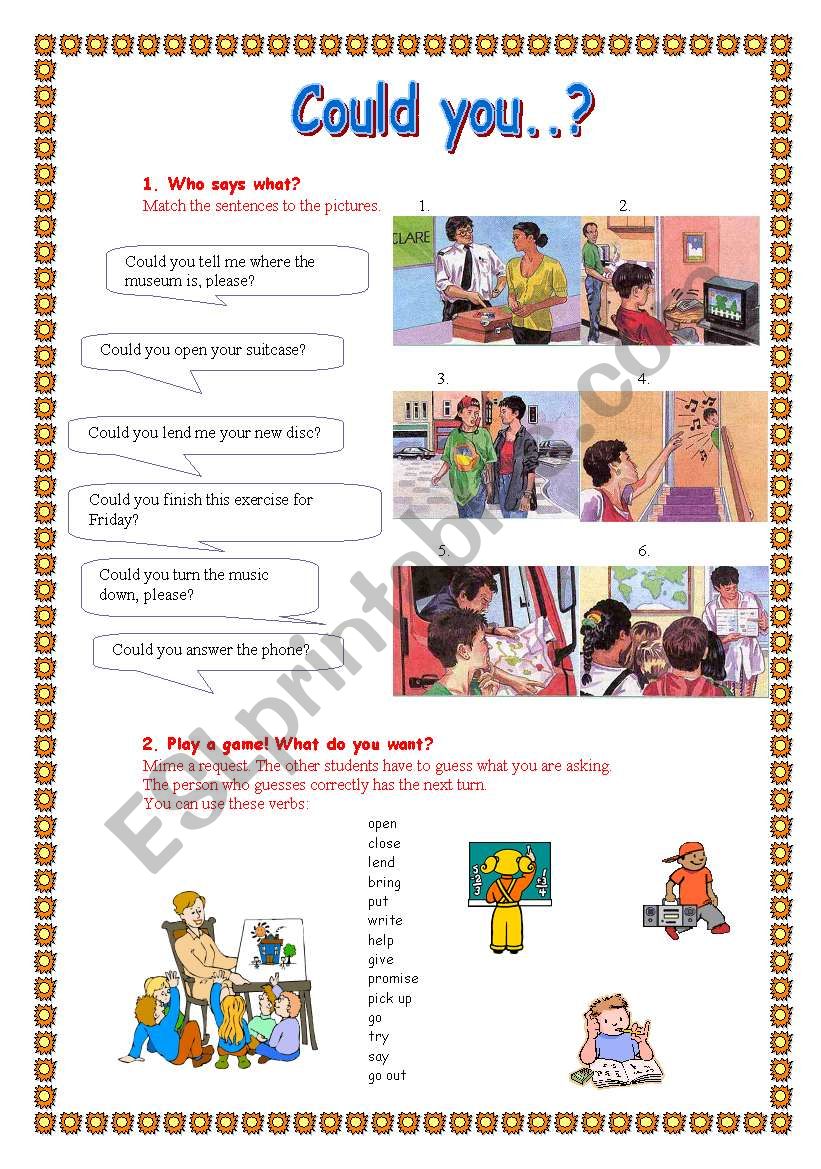
Could you..? ESL worksheet by Makol
Having the ability to do something not only allows you to do things you otherwise wouldn't, it gives the possibility to do things that otherwise wouldn't exist- of course you don't always do those things just because you can. If I could understand German I could get a job in Germany, but I probably wouldn't. - Jim Feb 14, 2017 at 1:12

Would, Should, and Could How to Use Them Correctly Efortless English
If you could email me the form you were talking about. Instead of finishing the sentence by giving a conclusion to the "if" clause, the speaker just lets the sentence fade off. The meaning is "Please do this" but it sounds less direct. Sometimes people do finish the sentence with "that would be great" or "I would appreciate it": If you could.
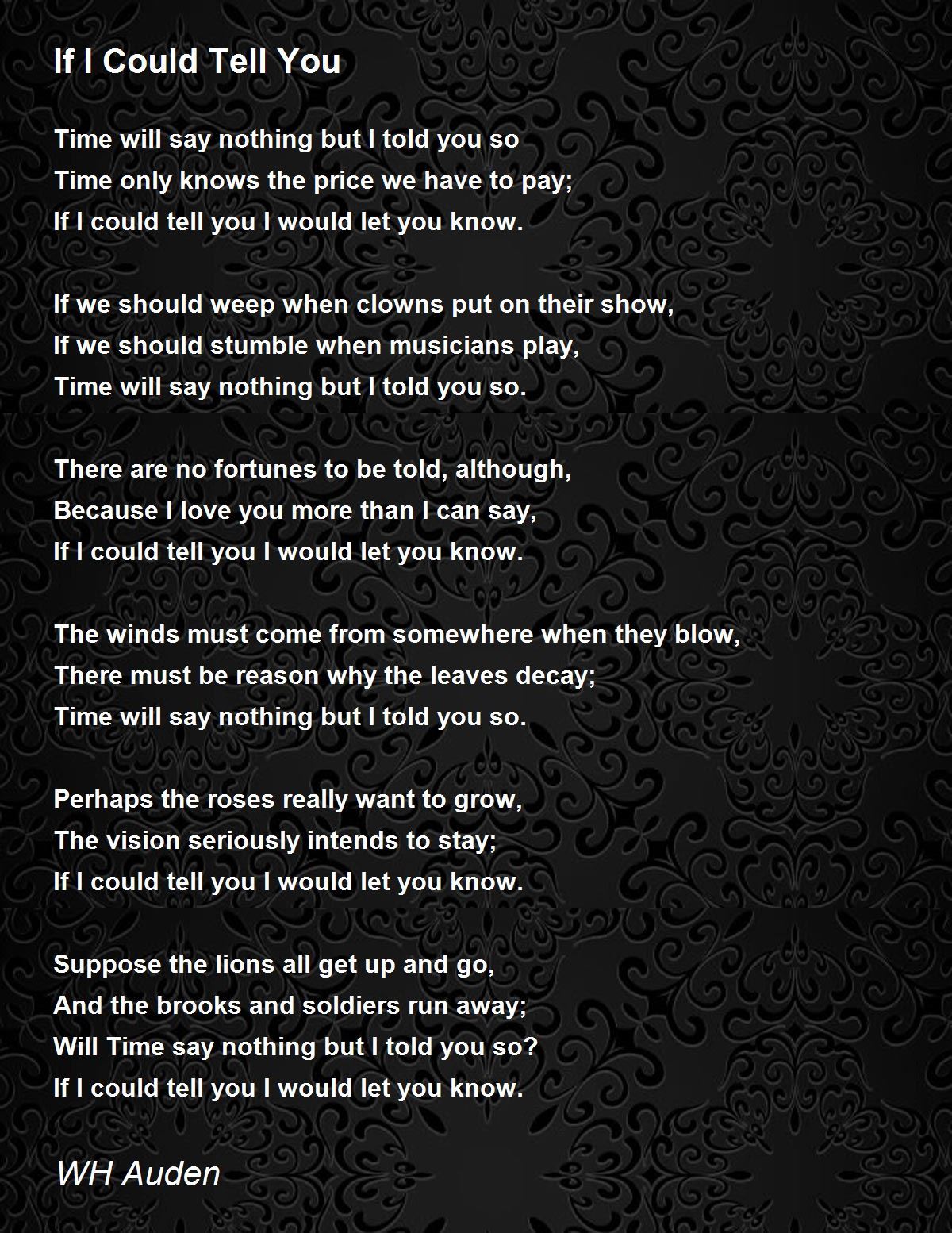
If I Could Tell You Poem by WH Auden Poem Hunter
In the if I could, the past tense could has a counterfactual meaning rather than a past time meaning. Of course, the verb following the modal can't be past tense, so to give it a past time meaning, use the perfect aspect (i.e., could + have + past participle).
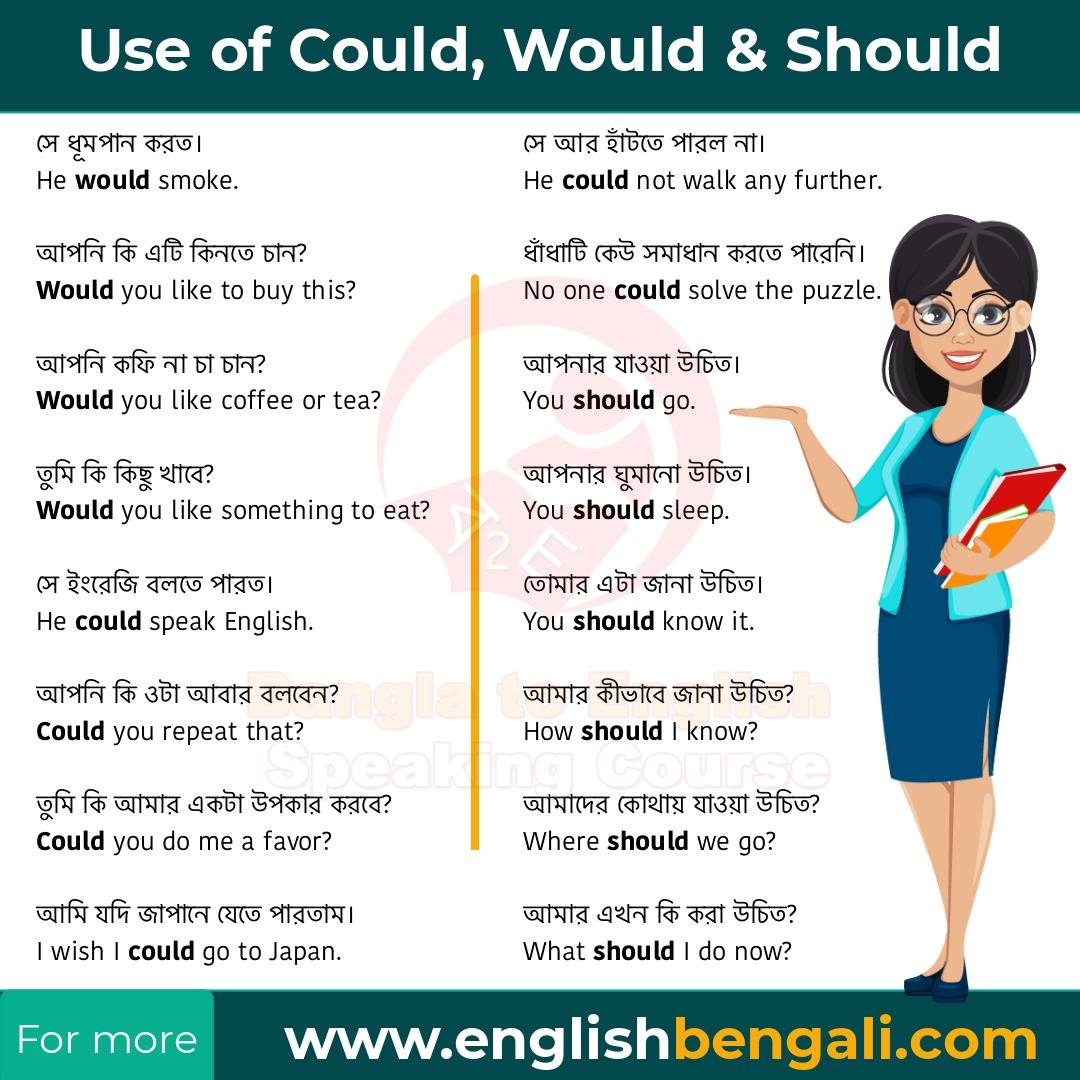
Could, should and would Learn Modal Verbs English Grammar
Could and would are related, but they mean different things. Could expresses possibility, while would expresses certainty and intent. A good way to remember the differences between these two words is simply to bring each word back to its root verb. Could is the past tense of can. Would is the past tense of will.

Exemplary Modal Verbs Flashcards Phase 5
Don't let your confusion between "would" and "could" lead to an embarrassing grammar mistake! Just follow these simple tricks! To further clarify, examples can illustrate correct "would" and "could" usage.

Modal verbs WOULD / COULD vs WILL / CAN Learn english words, Learn english, English phrases
There are a few things you should note. "Could," "should," and "would" are not used in the zero conditional. This is because the zero conditional describes things that always happen. "Could," "should" and "would" only deal with things that may or may not happen. Additionally, "should" is not generally used in the.

If I Would, Could You? ‘Singles’ Live Read Coming, November 5 Film Independent
Usage of "if you would" Ask Question Asked 5 years, 6 months ago Modified 3 years, 2 months ago Viewed 54k times 13 In a recent conversation the following sentence came up: I would be honored if you would join me there, {name}. A friend of mine stated that this is grammatically wrong and the correct way would be: